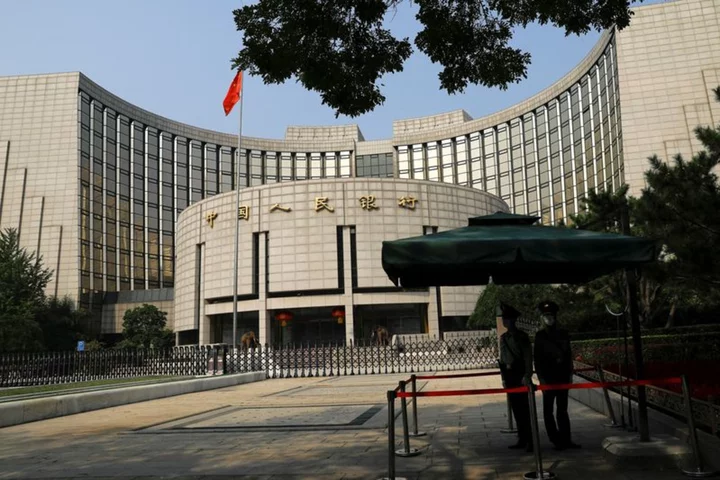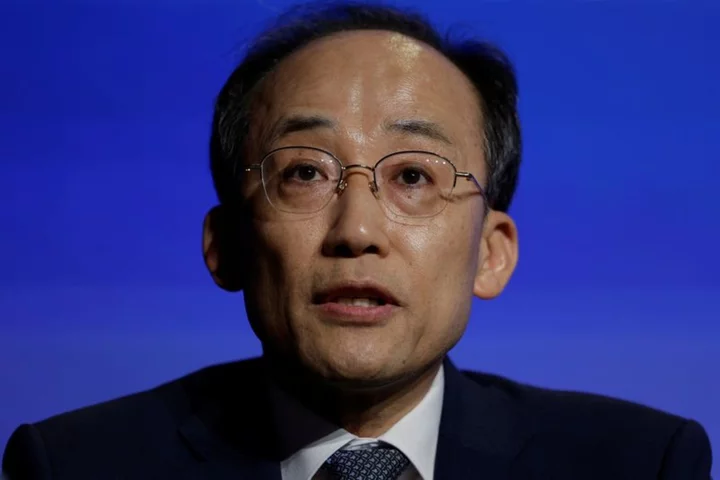SHANGHAI/SINGAPORE (Reuters) -China kept benchmark lending rates unchanged at a monthly fixing on Wednesday, matching market expectations, as fresh signs of economic stabilisation and a weakening yuan reduced the need for immediate monetary easing.
Recent economic data showed the world's second-largest economy was picking up steam, while yuan declines have reduced the urgency for authorities to aggressively lower interest rates to prop up slowing growth.
The one-year loan prime rate (LPR) was kept at 3.45%, while the five-year LPR was unchanged at 4.20%.
Most new and outstanding loans in China are based on the one-year LPR, while the five-year rate influences the pricing of mortgages.
In a Reuters survey of 29 market analysts and traders, all participants predicted no change to the one-year LPR, while a vast majority of them also expected the five-year rate to remain steady.
The steady LPR fixings follow the central bank's decision last week to roll over maturing medium-term policy loans while keeping the interest rate on them unchanged last week.
The medium-term lending facility (MLF) rate serves as a guide to the LPR and markets see it as a precursor to any changes to the lending benchmarks.
"Monetary policy rollout maintains its steady pace, and there are still chances for reductions to LPRs next month," said Xing Zhaopeng, senior China strategist at ANZ.
"Net interest margin is not an obstacle for rate cuts as banks have lowered deposit rates."
Xing added that economic data will continue to improve in the fourth quarter and that the low base effect will ensure growth exceeds 5% in the fourth quarter.
"The policy impact will extend to the next few quarters. We have revised our 2023 and 2024 GDP forecast up to 5.1% and 4.2%," he said.
China's central bank last week lowered the amount of cash banks must hold as reserves for a second time this year to boost liquidity and support economic recovery.
China cut the one-year benchmark lending rate in August but surprised markets by keeping the five-year rate unchanged.
(Reporting by Winni Zhou and Tom Westbrook, Editing by Sam Holmes)









